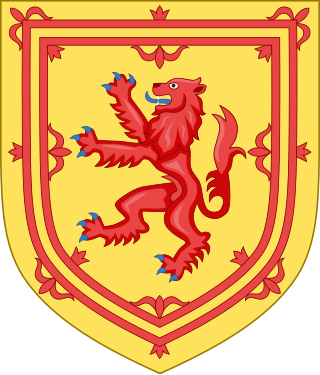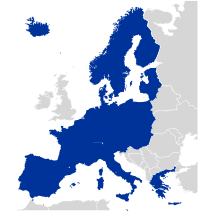Procurement is the method of discovering and agreeing to terms and purchasing goods, services, or other works from an external source, often with the use of a tendering or competitive bidding process. When a government agency buys goods or services through this practice, it is referred to as public procurement.

The Directorate-General for Communications Networks, Content and Technology is a Directorate-General of the European Commission and is responsible for EU investment in research, innovation and development of critical digital technologies.
The Committee on Employment and Social Affairs (EMPL) is a committee of the European Parliament. It is responsible for issues of employment and social policy, including labour rights, social security, inclusion, free movement for workers and pensioners, professional and vocational training, the European Social Fund, and employment discrimination law. During the Ninth European Parliament (2019–2024), the committee has 55 members. Since 24 January 2022, it is chaired by Dragoș Pîslaru from Romania.

Directorate-General for Environment is a Directorate-General of the European Commission, responsible for the Environmental policy of the European Union. In 2010 "relevant [climate change] activities in DG Environment" were moved to the new DG Climate Action. At the same time the DG Energy (ENER) was also established. The 2022 commissioner was Virginijus Sinkevičius.
The European Education and Culture Executive Agency, or EACEA, is an executive agency of the European Commission located in Brussels, Belgium. It manages parts of the European Commission's funding programmes in education, culture, media, sport, youth, citizenship and humanitarian aid. EACEA has been operational since January 2006.

The Directorate-General for Justice and Consumers is a Directorate-General of the European Commission. The role of the body is to ensure that the whole European Union (EU) is an area of freedom, security and justice. The specific tasks and responsibilities of the DG are laid down by the Treaty of Rome, the Treaty of Amsterdam which came into force on 1 May 1999 and the conclusions of the European Council meeting in Tampere (Finland) in October 1999.

The Directorate-General for Trade is a Directorate-General of the European Commission. The European Commission's Directorate- General for Trade develops and implements the EU's trade policy in order to help secure prosperity, solidarity and security in Europe and around the globe. It covers a wide area from manufactured goods to services, intellectual property and investment.

Government procurement or public procurement is the procurement of goods, services and works on behalf of a public authority, such as a government agency. Amounting to 12 percent of global GDP in 2018, government procurement accounts for a substantial part of the global economy.
The Commissioner for Jobs and Social Rights is a member of the European Commission. The position was previously titled as the Commissioner for Employment, Social Affairs, Skills and Labour Mobility until 2019.

David O'Sullivan is the Director General of the Institute of International and European Affairs (IIEA). He was previously a European civil servant served as Ambassador of the European Union to the United States from 2014 to 2019, Chief Operating Officer of the EEAS from 2010 to 2014, Director-General of DG RELEX from October 2010 to December 2010, Director-General of DG Trade from 2005 to 2010, Secretary General of the European Commission from 2000 to 2005.

The work of the Scottish Government is carried out by Directorates, each headed by a Director. The Directorates are grouped into a number of Directorates-General families, each headed by a Director-General. However, the individual Directorates are the building blocks of the system. The Directorates are further broken down into "Divisions" and then by teams. Divisions usually consist of 25-50 people. There is no direct correspondence between the political responsibilities of the Ministers in the Scottish Government and the Directorates, although in some cases there is considerable overlap. The Directorates are also responsible for a number of government agencies and non-departmental public bodies. Some government work is also carried out by Executive Agencies such as Transport Scotland, who sit outside the Directorates structure, but are also staffed by civil servants

The area of freedom, security and justice (AFSJ) is a collection of justice as well as migration & home affairs policies designed to ensure security, rights and free movement within the European Union (EU). Fields covered include the harmonisation of private international law, extradition arrangements between member states, policies on internal and external border controls, common travel visa, immigration and asylum policies and police and judicial cooperation.
Employment discrimination law in the European Union comprises two directives. The directives were agreed by all EU member states in 2000. Each member state was then obliged to incorporate these new laws into their national legislation. The European Parliament Committee on Employment and Social Affairs is responsible for oversight.

The Directorate-General for Migration and Home Affairs is a Directorate-General of the European Commission. The role of the body is to ensure the EU's security, to build a common EU migration and asylum policy, and to promote dialogue and cooperation with non-EU countries. Thereby, it contributes to the area of freedom, security and justice (AFSJ).
A Ministry of Social Affairs or Department of Social Affairs is the common name for a government department found in states where the government is divided into ministries or departments. While there is some variation in the responsibilities of such ministries, the common thread between them is their responsibility for assisting members of society who are in a vulnerable position for example due to age, dependence on government aid, or being the employee in an employee/employer relationship. Ministries of this type cover matters such as social work, social protection and assistance, pensions, welfare, health and social security, and workplace standards for employees
Estrella Durá Ferrandis is a Spanish Professor of Psychology at the University of Valencia and became a Member of the European Parliament in 2019. She belongs to the Progressive Alliance of Socialists and Democrats (S&D) in the European Parliament and represents the Spanish Socialist Workers' Party (PSOE).
At around £290 billion every year, public sector procurement accounts for around a third of all public expenditure in the UK. EU-based laws continue to apply to government procurement: procurement is governed by the Public Contracts Regulations 2015, Part 3 of the Small Business, Enterprise and Employment Act 2015, and the Public Contracts (Scotland) Regulations of 2015 and 2016. These regulations implement EU law, which applied in the UK prior to Brexit, and also contain rules known as the "Lord Young Rules" promoting access for small and medium enterprise (SMEs) to public sector contracts, based on Lord Young's Review Growing Your Business, published in 2013. In November 2016 an advisory panel of 24 entrepreneurs and business figures was formed to advise the government on purchasing goods and services from SMEs, and a campaign was launched to demonstrate that "government is open for business", with a target of increasing government spending with SMEs to 33% of all third-party public expenditure by 2020.










